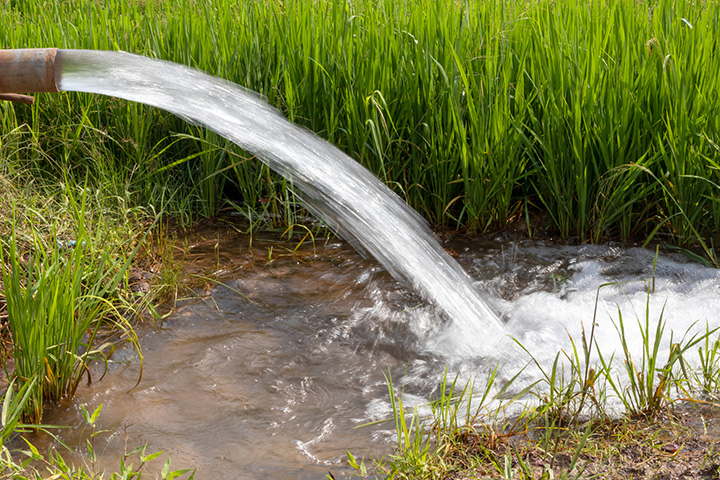Groundwater Awareness Week: Protecting our hidden water source

Groundwater Awareness Week encourages us to focus on a vital resource that’s often overlooked: groundwater. This essential water source supports our drinking water, agriculture, and ecosystems, yet many don’t realize its importance. This week is a chance to raise awareness about groundwater and explore how we can all help protect it.
Why groundwater is important
Groundwater is water found beneath the Earth’s surface in spaces between rocks and soil. It's a major source of fresh water for millions of people. In the U.S., 115 million people depend on groundwater for drinking, especially in rural areas where surface water sources are limited. Forty-three million of those rely on groundwater from private wells (https://www.usgs.gov/news/featured-story/quality-nations-groundwater).
Groundwater also supports farming by irrigating crops and providing water for livestock. In addition, it keeps natural habitats like streams and wetlands healthy.
Threats to groundwater
Despite its importance, groundwater faces many challenges. Overuse is a big concern—too much water being pulled from the ground can deplete supplies, causing water levels to drop and making water harder (and more expensive) to access. Some regions of the U.S. are at risk of seeing wells run dry due to drought (https://www.usgs.gov/special-topics/water-science-school/science/drought-and-groundwater-levels).
Contamination is another serious issue. Things like industrial waste, agricultural runoff, and chemical disposal can pollute groundwater, and once it's contaminated, it can take years or even centuries to recover (https://pmc.ncbi.nlm.nih.gov/articles/PMC7778406/).
Groundwater in Washington state
Washington state has a wide variety of landscapes, from coastal areas to mountains, which affect groundwater availability. For example, the Puget Sound area has many aquifers that supply water to urban centers, while Eastern Washington struggles with overuse and contamination from farming.
As the state’s population grows and climate change shifts weather patterns, managing groundwater will be essential for keeping water supplies safe and reliable. Over 60% of Washingtonians get their drinking water from groundwater (https://ecology.wa.gov/water-shorelines/water-quality/groundwater). In addition to irrigation agriculture, groundwater is also used by other industries.
The Washington State Department of Agriculture’s Groundwater Quality Protection projects address groundwater impacts from agricultural practices, primarily related to the use of pesticides and fertilizers. WSDA collaborates with state and local partners on groundwater quality protection projects to address potential impacts from agricultural production.
Groundwater Awareness Week: A call to act
Groundwater Awareness Week reminds us of the need to protect this vital resource. It’s a chance for individuals, organizations, and communities to learn more about groundwater and take action to safeguard it. Everyone can play a part in protecting groundwater. Here are some steps you can take:
-
Learn about groundwater: The more you know about how groundwater works, the better you can help protect it. Share what you learn with others. Support policies that protect groundwater.
-
Conserve water: Fix leaks, take shorter showers, and turn off the tap when brushing your teeth. Use timers on your lawn and garden. Collect rainwater for use in your garden.
-
Plant native: Use native or drought-resistant plants in your garden, which require less water and fewer chemicals.
-
Practice sustainable farming: Plant cover crops to reduce evaporation and erosion. Use drip irrigation to deliver water directly to the roots. Practice conservation tillage to minimize soil disturbance that allows for better absorption and reduces erosion. Water during cooler times of the day to reduce waste and evaporation. Apply mulch to garden beds to reduce evaporation.
-
Reduce chemical use: Use organic alternatives to fertilizers and pesticides to avoid polluting groundwater. Try using simple, non-toxic ingredients like vinegar or baking soda instead of harsh chemicals for cleaning.
-
Dispose of waste properly: Never pour chemicals like motor oil or cleaners down the drain or into your septic system. Many communities offer safe disposal programs.
Water wisely: Working together for a sustainable future
Protecting groundwater is everyone’s responsibility. By making mindful choices about water use, supporting conservation efforts, and educating ourselves and others, we can ensure that clean, safe groundwater is available for future generations.
As we celebrate Groundwater Awareness Week, let’s recognize the importance of this hidden yet essential resource and work together to protect it for the health of our planet and communities.
Find more information about groundwater in the National Groundwater Association website at https://www.ngwa.org/get-involved/gwaw

